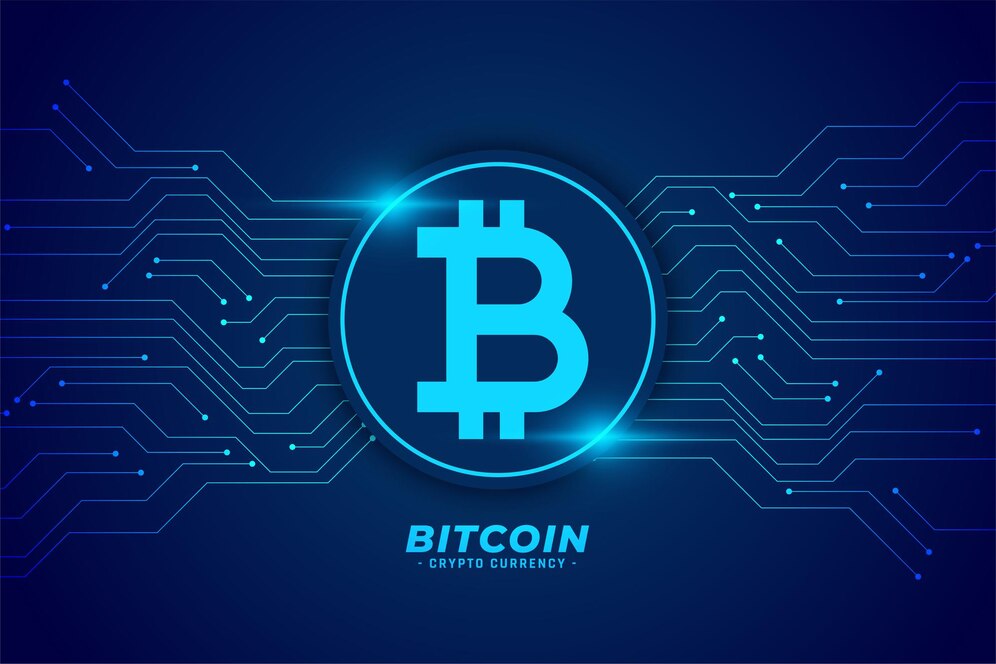Exploring the Philosophical Framework of Bitcoin

In the rapidly shifting landscape of digital currencies, Bitcoin has risen as a revolutionary phenomenon with implications that transcend mere finance. Beyond its role as a decentralized medium of exchange, Bitcoin carries profound philosophical foundations that challenge conventional notions of currency, trust, and governance. This exploration takes a deep dive into these philosophical underpinnings that underlie Bitcoin’s ascent, shedding light on how they are actively shaping the trajectory of the future. While pondering the philosophical tenets of Bitcoin, platforms like the Nerdynator official site provide an applied perspective on its trading aspects.
At its core, Bitcoin represents a departure from traditional financial frameworks by introducing decentralized governance through its blockchain technology. This challenges the long-held belief in centralized authority and prompts reconsideration of the nature of trust. Moreover, Bitcoin’s fixed supply and cryptographic security evoke philosophical discussions about scarcity, value, and the very essence of money. These aspects collectively paint Bitcoin as not just a technological innovation, but a catalyst for reevaluating fundamental concepts that extend well beyond the digital realm.
The Genesis of Decentralization
Unraveling Centralization
Central to Bitcoin’s ideology is the principle of decentralization. In contrast to conventional financial structures which are centralized and overseen by intermediaries like banks and governments, Bitcoin functions within a decentralized framework powered by blockchain technology. This distributed ledger system eliminates the necessity for intermediaries, reshaping the fundamental dynamics of financial transactions.
Empowering the Individual
Bitcoin’s decentralized nature provides individuals with the ability to have full control over their financial assets. This concept of decentralization aligns closely with the philosophical principles of individualism and freedom, as it allows people to have autonomy over their financial choices. The unique feature of being able to conduct transactions without the need for a central authority emphasizes the importance of self-sovereignty, where individuals have the power to manage their own financial transactions and assets without external interference.
The Philosophy of Scarcity
Digital Gold and Finite Supply
Bitcoin’s inherent scarcity plays a crucial role that aligns with the philosophy surrounding scarcity. Operating on a fixed supply of 21 million coins, Bitcoin closely resembles the scarcity characteristics observed in precious metals such as gold. This intentional limitation introduces a significant transformation in the perception of value, challenging the established economic model centered around inflationary currencies.
Store of Value and Timeless Wisdom
The scarcity-driven narrative positions Bitcoin as a store of value, akin to the way gold has been revered throughout history. This newfound digital scarcity encapsulates the age-old wisdom of valuing limited resources and encourages thoughtful consumption—a sentiment that finds resonance in philosophical discourses on sustainability and mindful living.
Trust in Mathematics and Cryptography
Immutable Truths
Bitcoin’s grounding in mathematics and cryptography harmonizes with philosophical notions of objective truth and enduring principles. The unchangeable nature of blockchain transactions guarantees an everlasting ledger, accentuating transparency and responsibility. This stands in stark contrast to the opaqueness frequently linked with conventional financial frameworks.
Decentralized Trust
Conventional currencies derive their value from the confidence placed in established institutions. In contrast, Bitcoin represents a paradigm where confidence is rooted in code and mathematical principles. This fundamental shift reorients the focal point of trust from centralized authorities to a decentralized protocol. This transition prompts contemplations on the philosophical underpinnings of trust, sparking conversations about the essence of faith and certainty.
Reshaping Governance and Authority
Democratizing Control
Bitcoin’s decentralized nature extends beyond transactions to governance itself. The decision-making process is democratized, with participants having a say in the protocol’s evolution. This decentralization of authority echoes philosophical ideals of participatory democracy and challenges established power structures.
Disrupting Hierarchies
By diminishing the power of intermediaries, Bitcoin redefines hierarchies. This resonates with philosophical theories critiquing centralized authority and advocating for more equitable systems. The disruptive potential of decentralized currency aligns with the pursuit of greater fairness and inclusivity.
Conclusion: A Philosophical Revolution
It serves as a canvas where philosophical ideals are painted onto the digital landscape. The decentralization, scarcity, trust in mathematics, and reshaping of governance embedded within Bitcoin challenge societal norms and provoke thought-provoking discourse. As we navigate this evolving landscape, Bitcoin philosophical underpinnings beckon us to explore new dimensions of currency, trust, and human interaction. It’s not just a technology; it’s a paradigm shift—a revolution rooted in philosophy.






